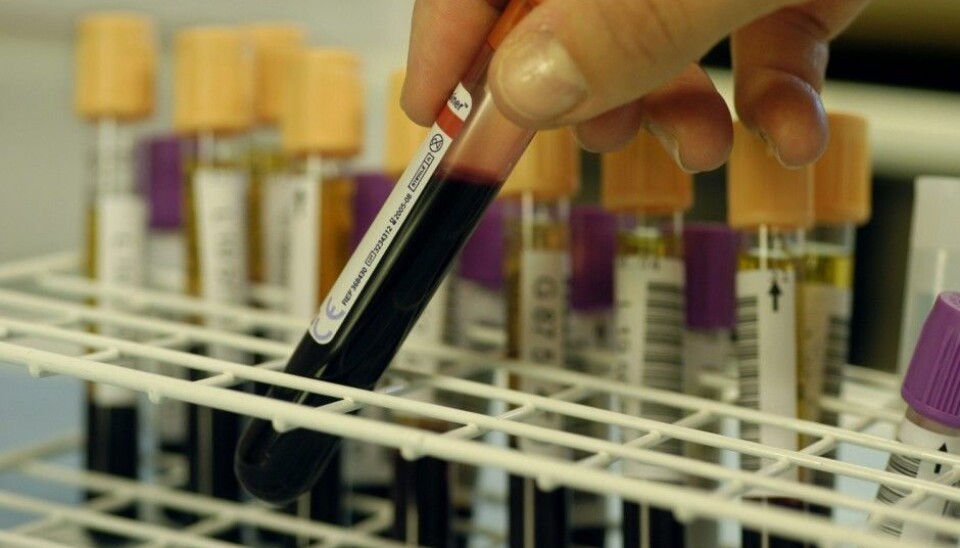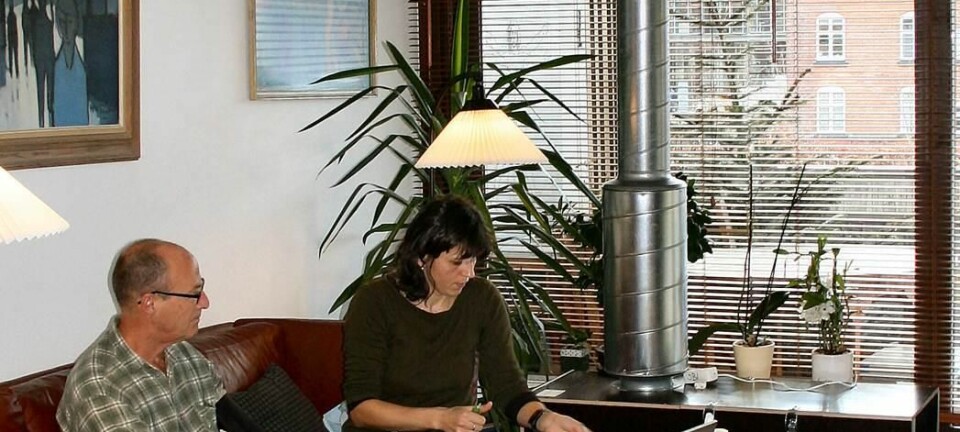
Blood sample can disclose your biological age
A blood sample can reveal whether you are ageing faster or slower than your date of birth would suggest. Lifestyles can make you biologically from two to six years older or younger, according to a Swedish study.
Grey hair, wrinkles and changes in posture are not the only signs of ageing. We get older on the inside too. The results include hearing loss, hypertension and loss of muscle.
Researchers at Uppsala University have analysed blood samples of 980 persons and calculated their biological age on the basis of the content of certain proteins.
On the molecular level biologically, some appeared to be several years younger and others several years older than their real ages.
Calculated age, weight and height
The researchers reckoned the persons’ biological ages by protein profiling ― analyses of 77 different proteins in their blood plasma.

They could see how the test subjects’ various lifestyles had impacted their calculated biological age.
“Their protein profile is affected by the lifestyles they have picked. Some factors accelerate the body’s biological age and others curtail it,” explains Ulf Gyllensten, professor of medical molecular genetics and genomics at Uppsala University. He led the research group that conducted the study.
Smoking and stress have particularly strong effects on the molecular processes in internal organs and make us age faster.
“This knowledge should help make it easier to motivate patients to change their lifestyles,” says Ulf Gyllensten to ScienceNordic’s Swedish partner forskning.se.
The body can be six years ahead
Smoking, abundant stress and a high body mass index make us age faster on the inside.
“Sugary drinks also make you older,” writes Professor Stefan Enroth to our Norwegian partner, forskning.no.
Combined with other unhealthy habits, this can raise an individual’s biological age by from two to six years, according to the research team. The ageing can be seen in the microscope in several other ways, such as a change in metabolism, altered DNA patterns and the shortening of the chromosome capsules, telomeres, which protect the genetic material.
Telomeres are like the hard base of a stiletto-heeled shoe. Once it wears out the heel becomes unprotected.
How to get younger
If you wish to postpone biological ageing as long as possible, eat fatty fish, lower your stress and get exercise. These are your greatest allies in the battle against your biological clock.
“This can counteract ageing to a comparable degree,” says Gyllensten.
“Drinking moderate amounts of coffee is also good, and makes you younger,” adds Enroth.
You can also make yourself younger by several years if you have a real unhealthy lifestyle and manage to exchange tobacco, soft drinks and junk food with fatty fish, exercise and suitable amounts of coffee.
A motivator
Researchers at Uppsala University suggest that if such blood tests are launched on the market they could make it easier for doctors to motivate their patients toward turning a new leaf and adopting healthy lifestyles.
“To date the method has only been used as a research tool. There is no commercial product yet which could be bought,” writes Stefan Enroth to forskning.no. He and his colleagues hope that GPs will someday be able to order such tests.
The researchers foresee patients growing more motivated to sticking to healthy lifestyles if their doctors make such blood tests regularly and these show improvements.
The article claims that such blood tests can also indicate which kinds of medical treatment patients should be given. Doctors will be able to make adjustments as time passes on the basis of how effective the treatments are shown to be.
Profiles of criminals
Another way to utilise this medical science could be at crime scenes, if unknown perpetrators left dry stains of their blood somewhere.
Forensic experts could use the test to get obtain a rudimentary profile of the criminal.
The protein profile would enable forensic officer to predict the basic physical traits of the villain, according to the researchers.
-------------------------------------
Read the Norwegian version of this article at forskning.no
Translated by: Glenn Ostling









